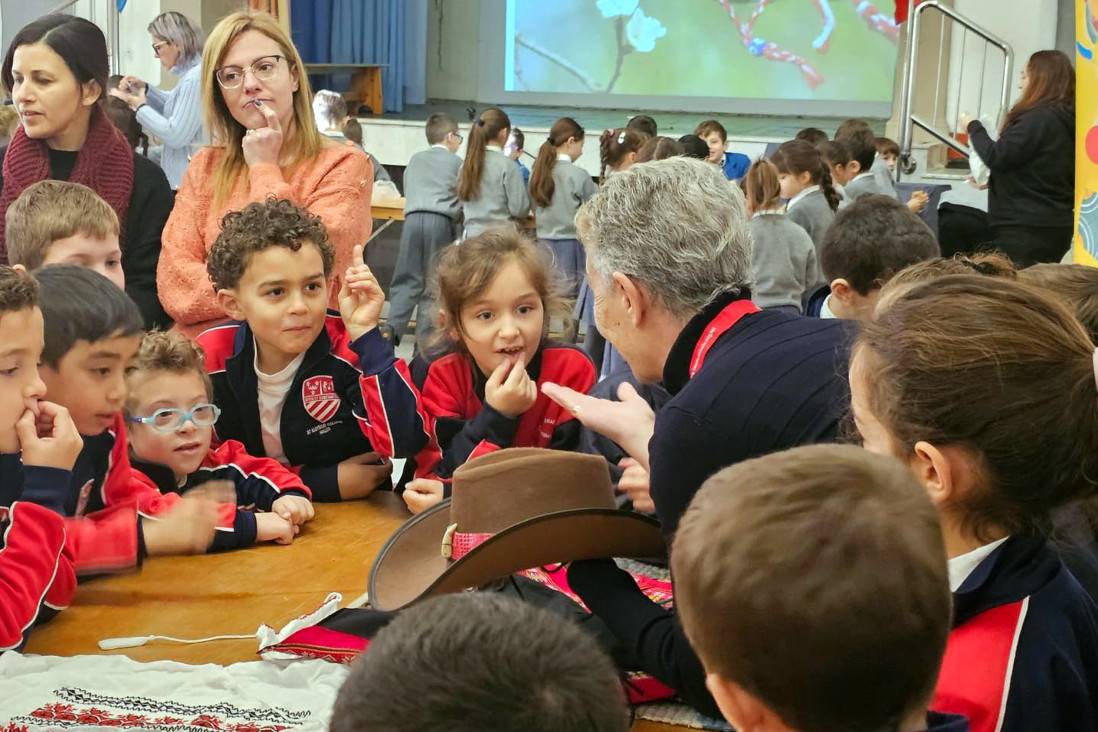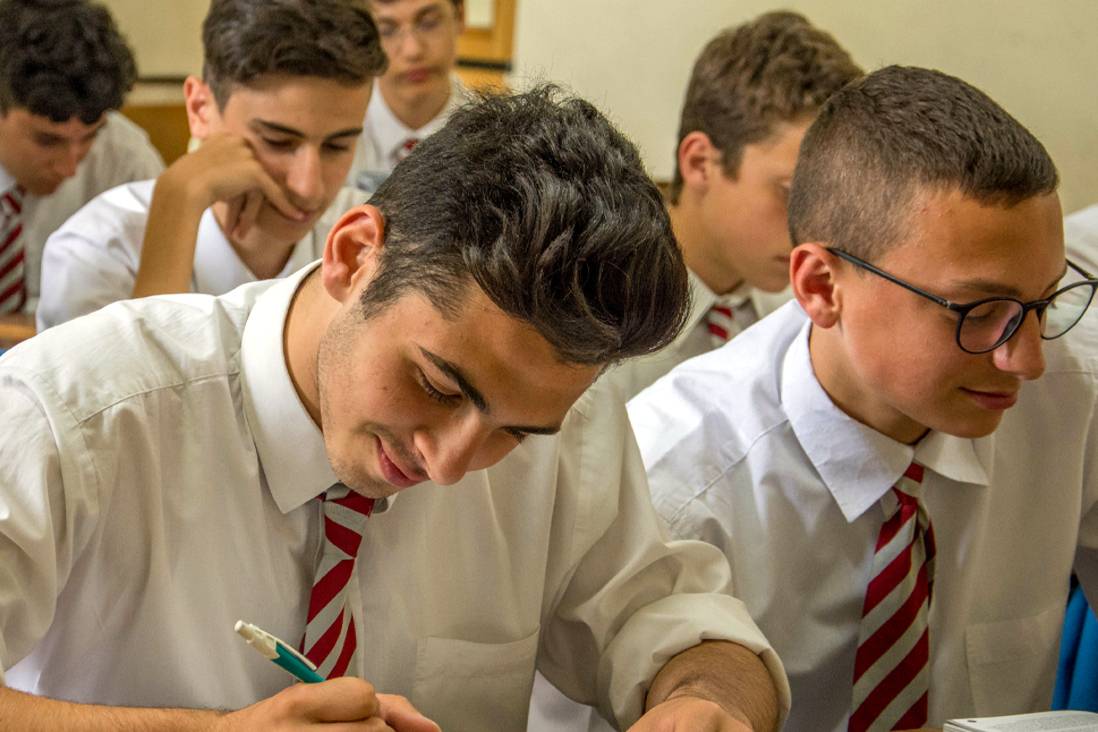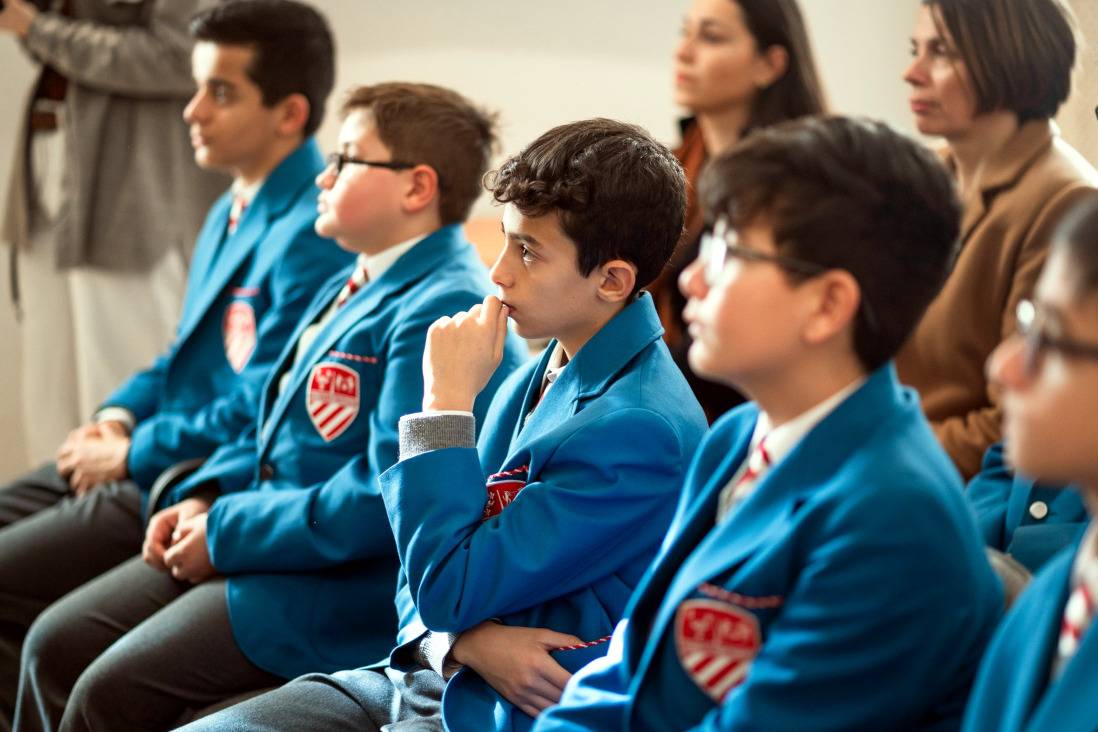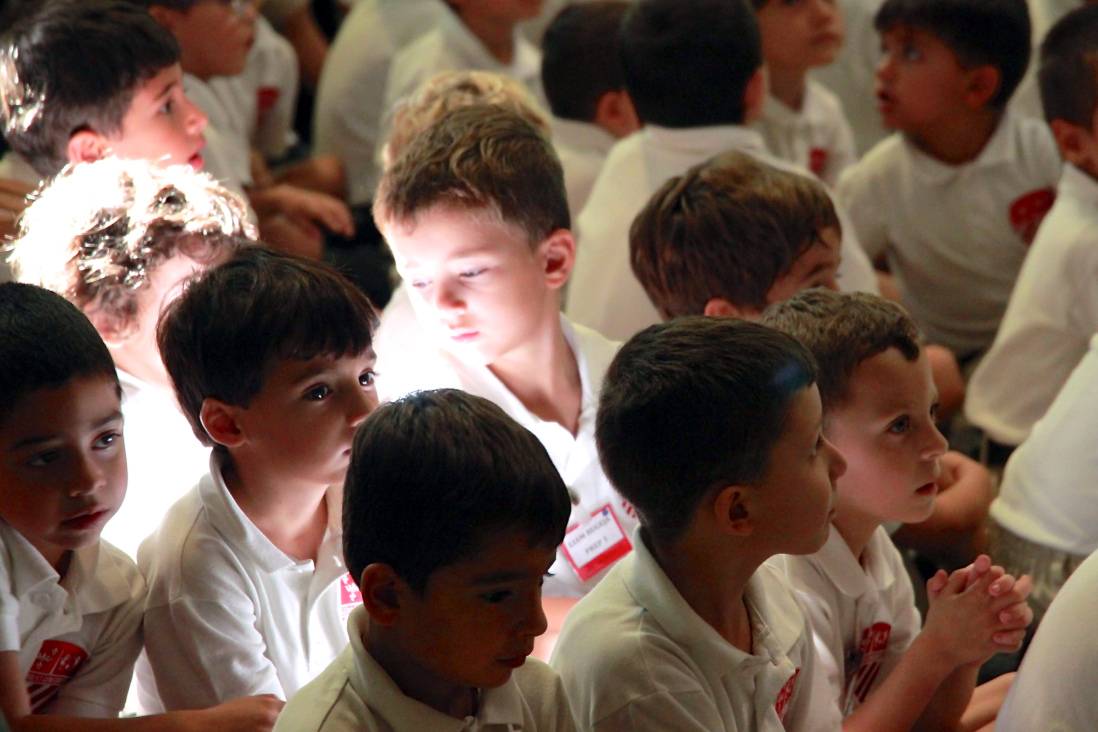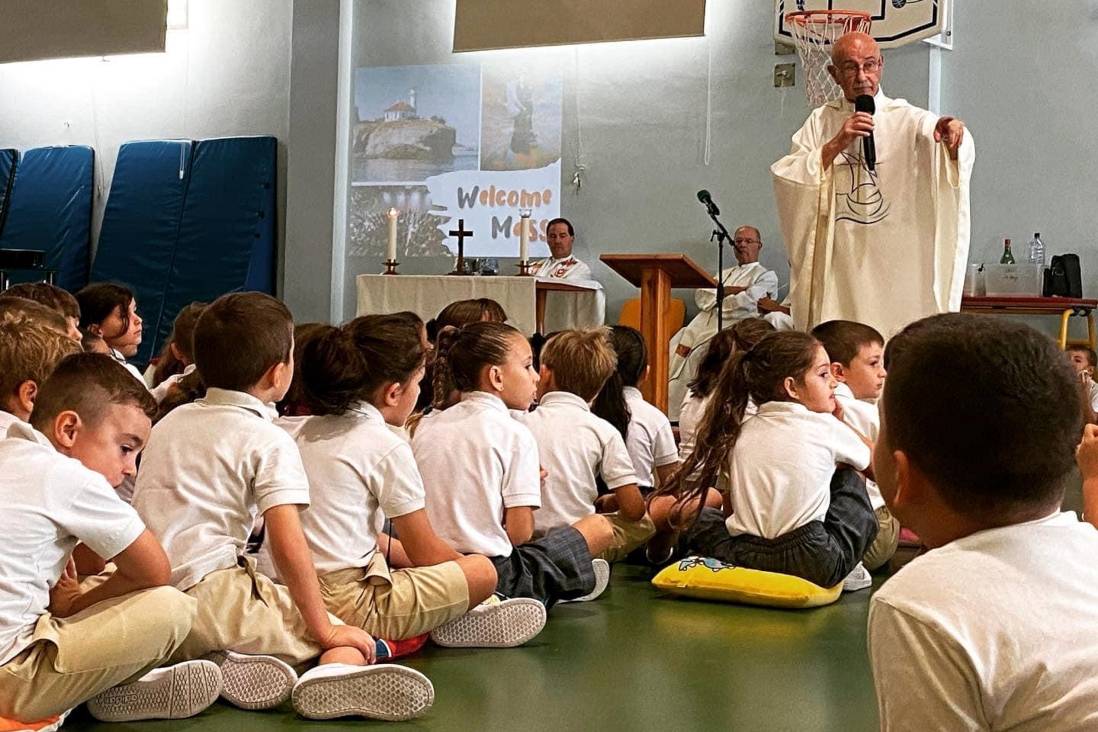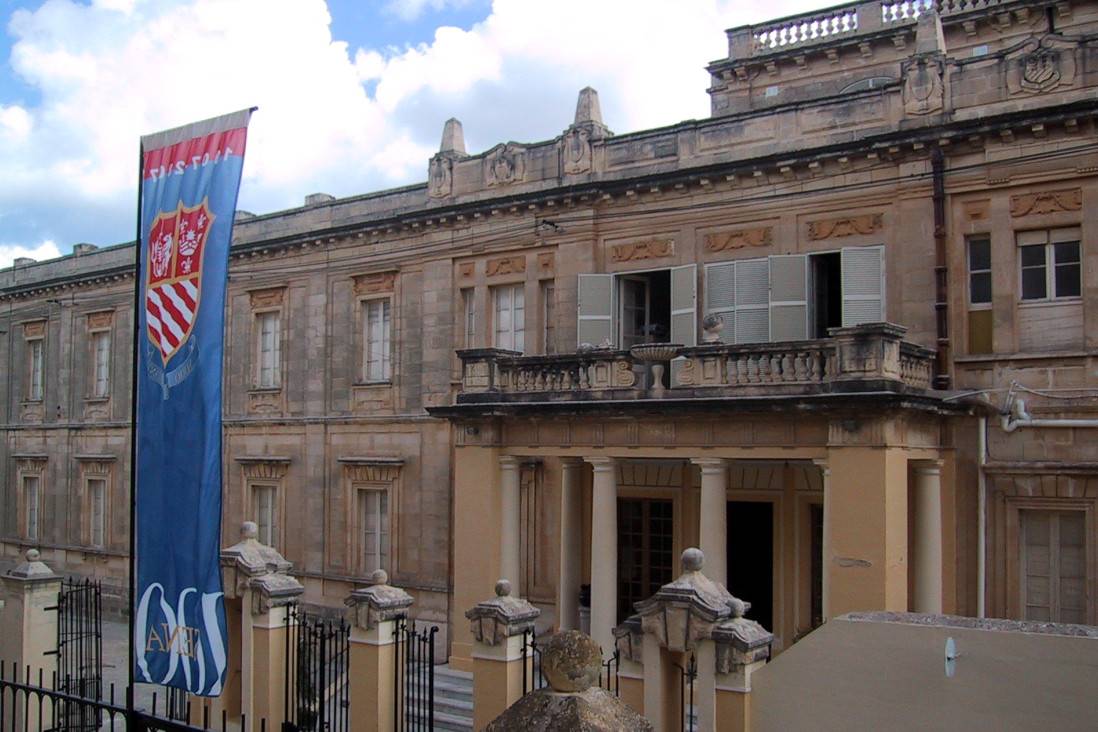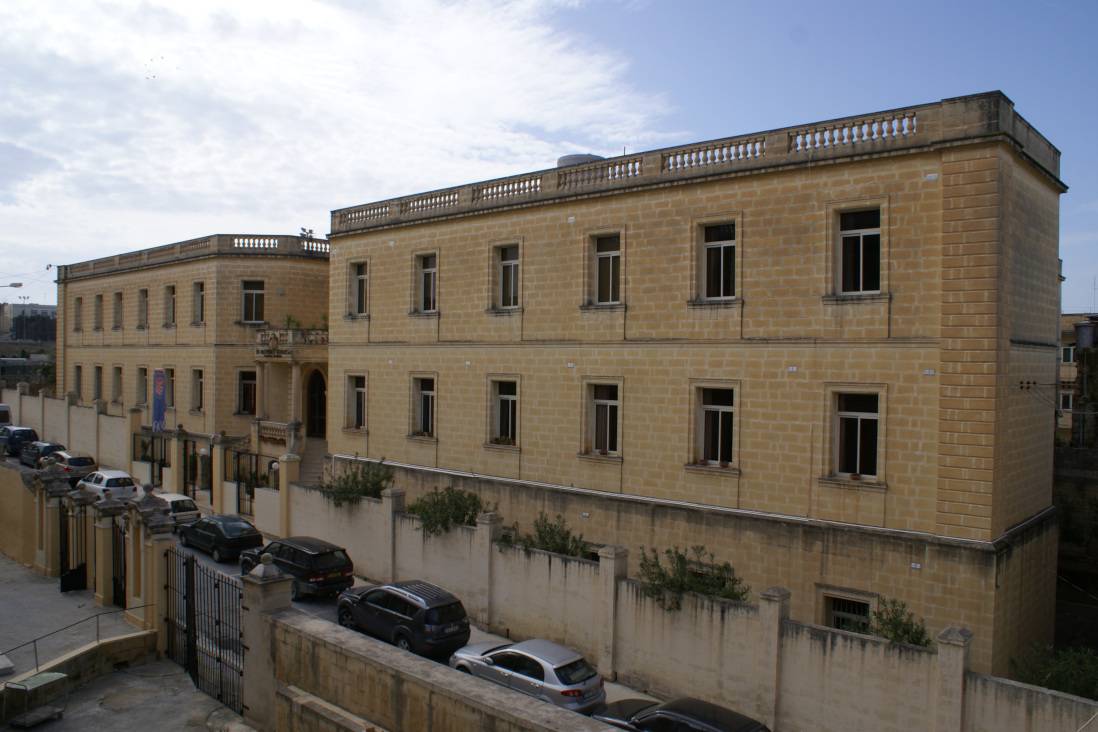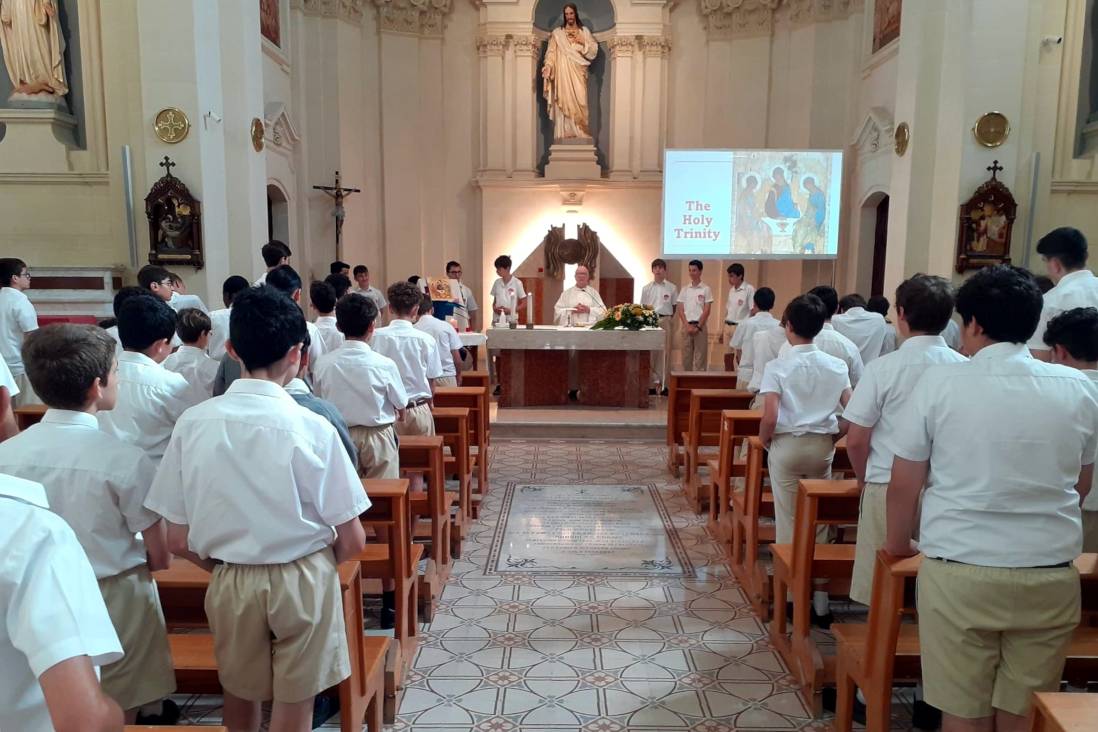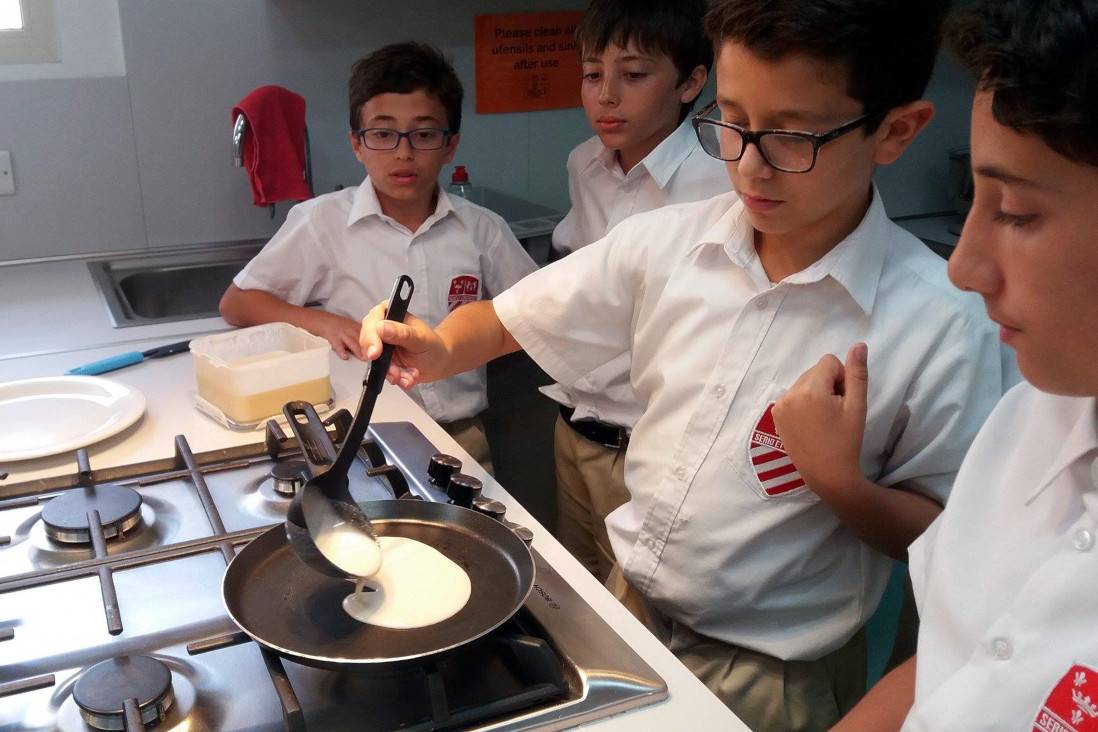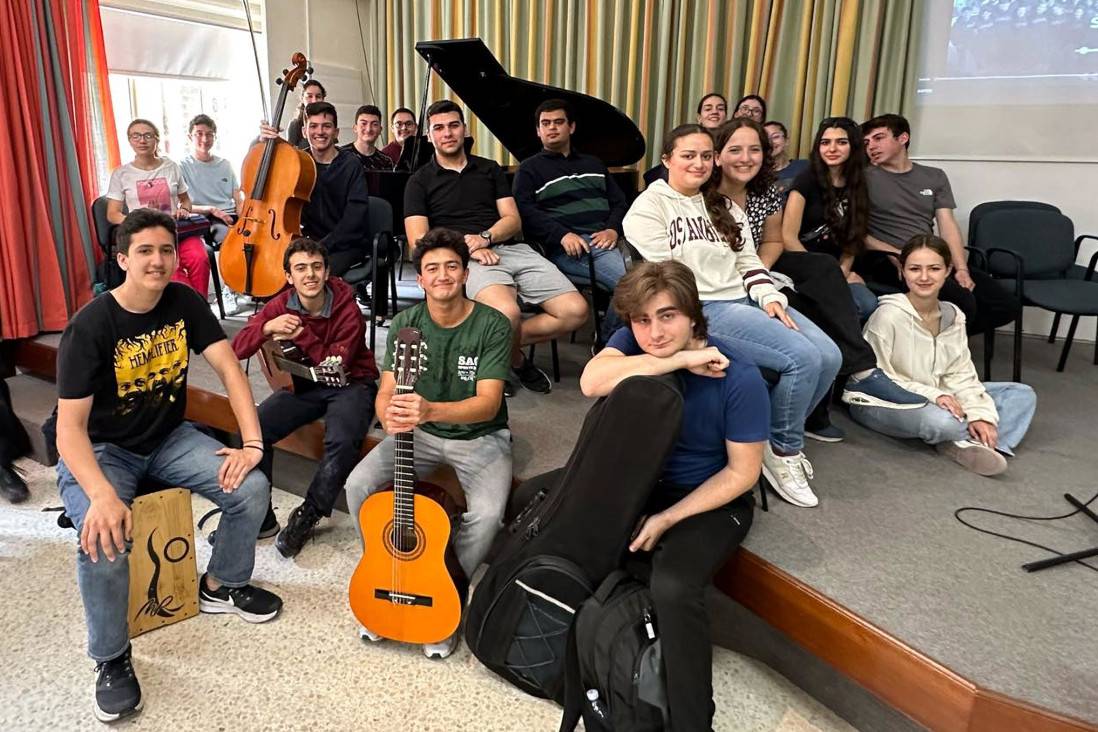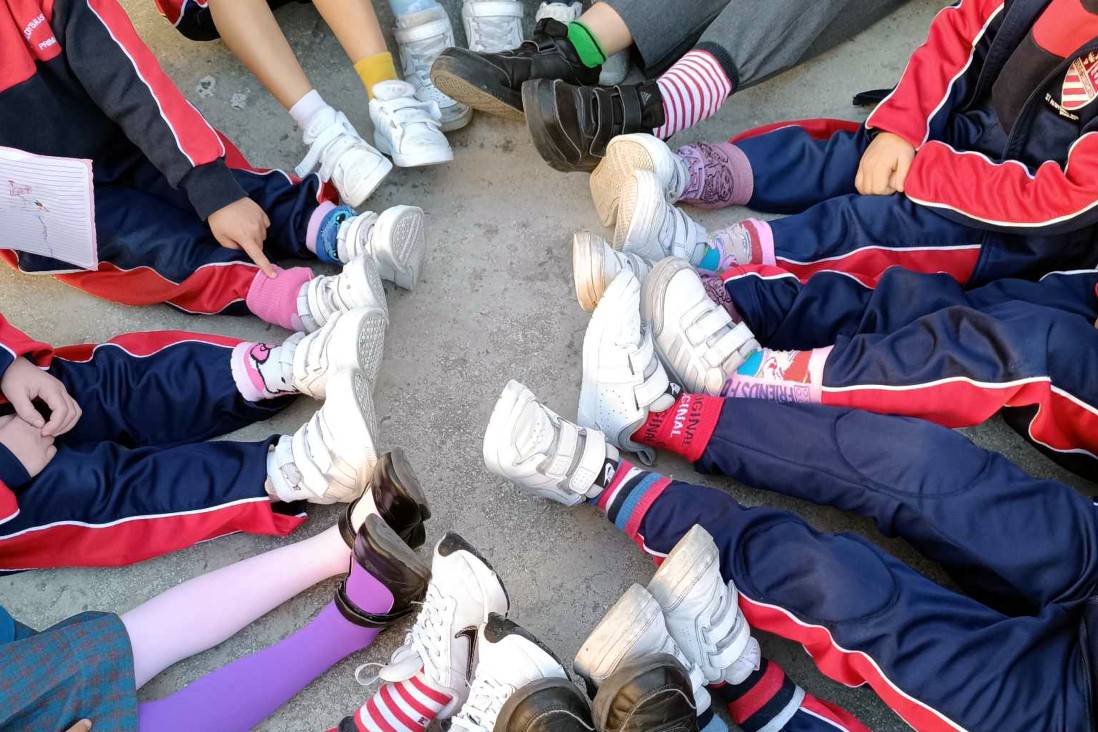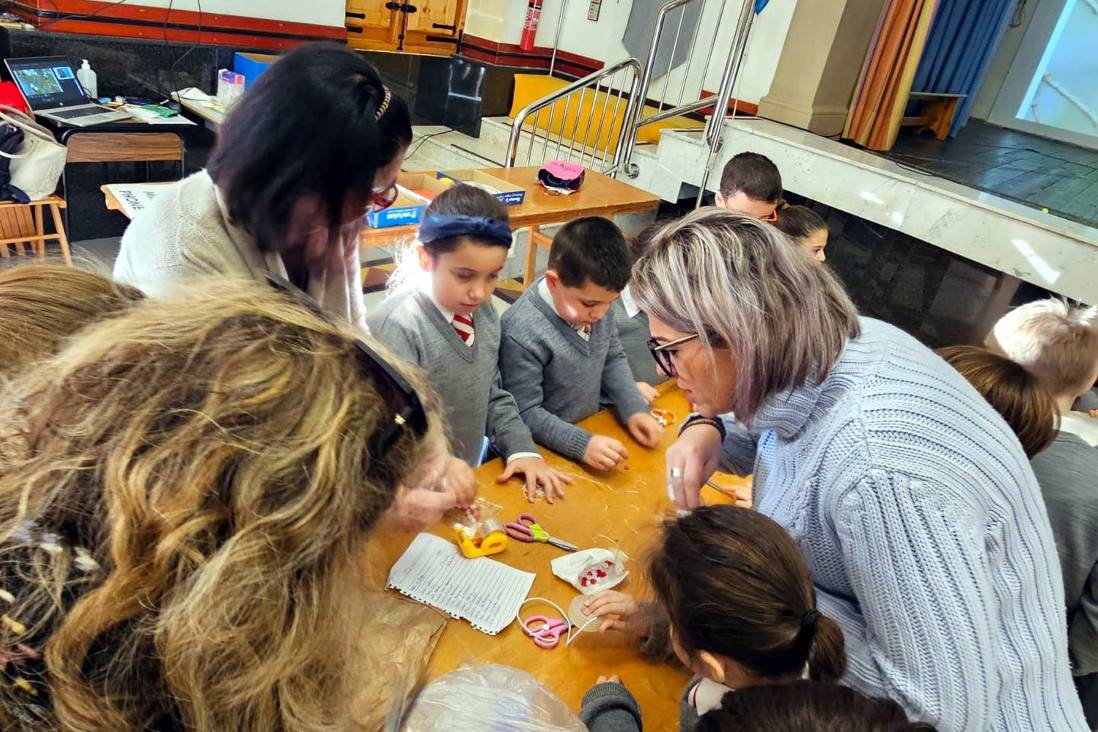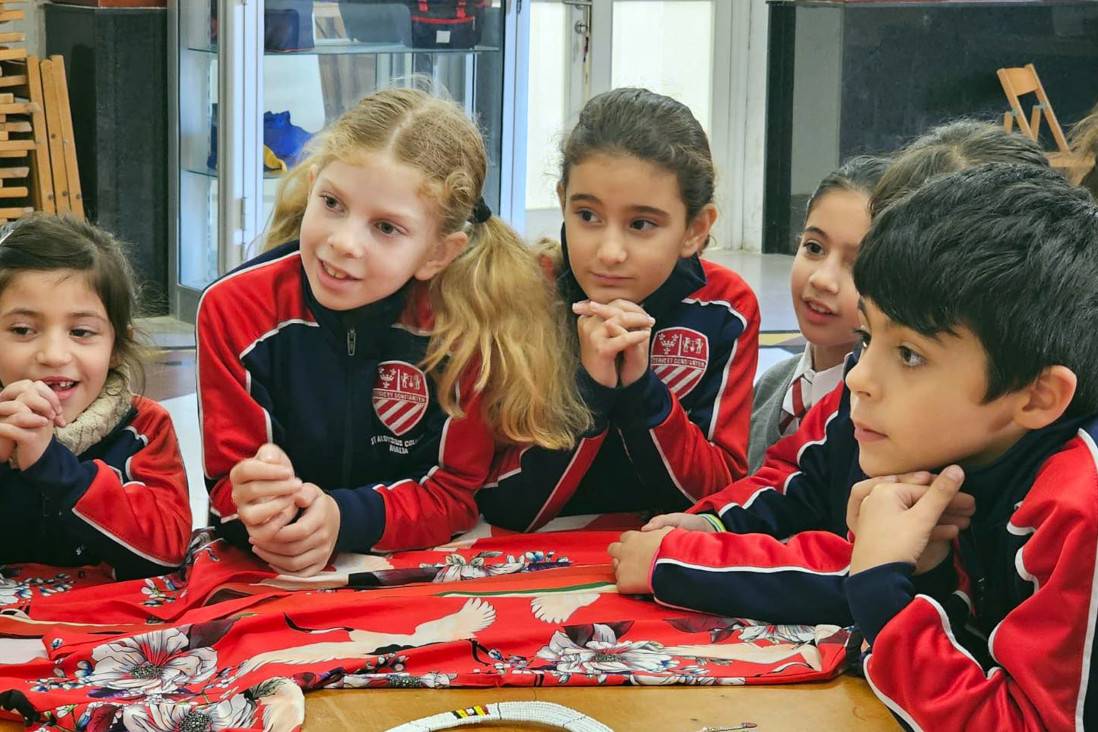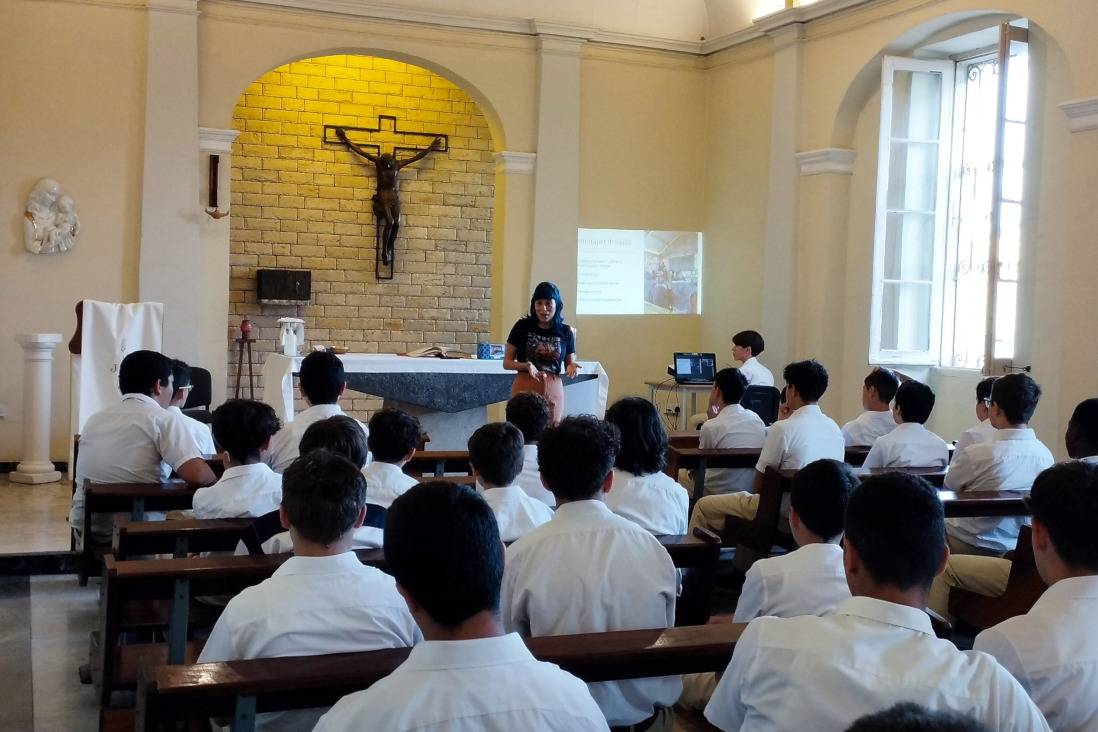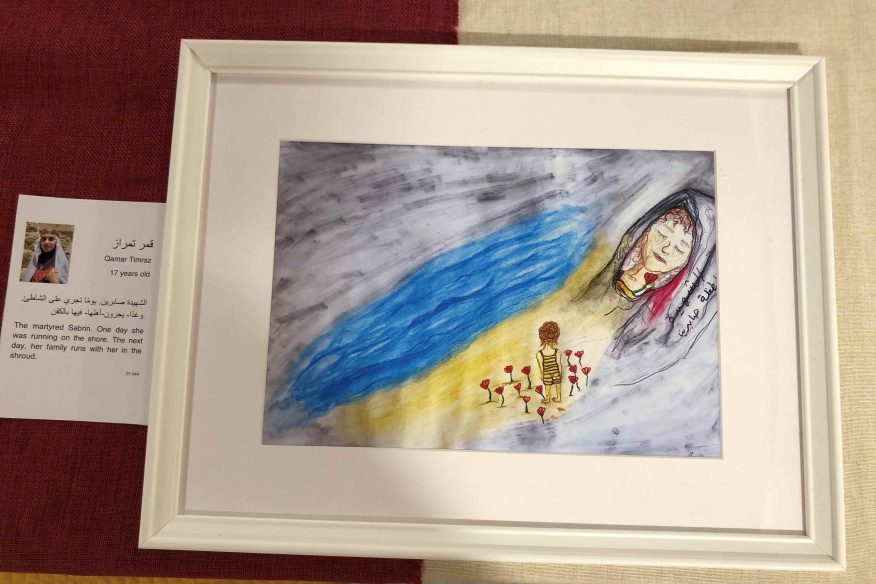St Aloysius College: inclusion and formation to become ‘men and women with and for others’
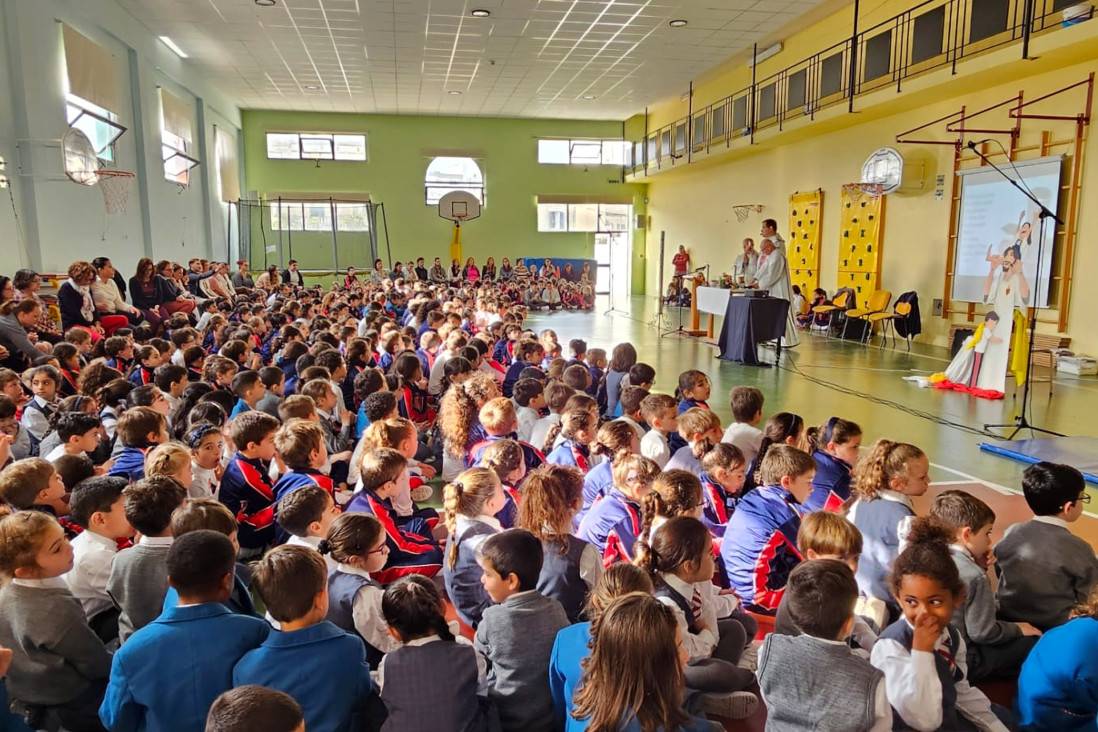
“Forming men and women with and for others. This is the mission of our College,” the Jesuit rector of St Aloysius College, Fr. Jimmy Bartolo, highlights, “which today welcomes 1524 students and has undergone many important changes in recent years: emphasis on inclusion,the introduction of co-education in the Primary School and eventually in the Secondary school; changes in the assessment policies and refurbishing school buildings and the sports complex. But the aim remains the same. We are focusing on the 4Cs of Jesuit education (competence, compassion, conscience and committment) as well as implimenting the ten indicators that characterise Jesuit education. We can only do this together: Jesuits, members of staff and parents/guardians collaborating in the one mission of the Society.”
The beginnings
The history of Jesuit education in Malta dates back to 1592 with the foundation of the ‘Collegium Melitense’ in Valletta, a college with pontifical faculties to award academic degrees. In 1768, Grand Master Pinto expelled the Jesuits from Malta, and the ‘Collegium’ developed into the modern University of Malta. It was only in 1845 that the Society of Jesus returned to Malta when a group of English Fathers opened St Paul’s Boarding School in Mdina, later transferred to Valletta. In 1866, the Sicilian Jesuits were directing and teaching at the Seminary in Gozo, while English Jesuits established St Ignatius’ College in St Julian’s. In October 1907, the Jesuits, at the request of Pope Saint Pius X, founded St Aloysius College in Birkirkara (as a boarding and day school), in the building, which presently houses the secondary school. It was originally built in 1896 to house the young Jesuits of the Sicilian Province who were expelled from Sicily by Garibaldi. In 1905, the novices and other scholastics were transferred to Sicily, and the building remained vacant for a while. The 8th of October 1907 saw the College open for the first time. There were 64 boarders, 56 day boys and 30 externs.
During the Second World War, almost three quarters of the College was ‘requisitioned’ by the Medical and Health Department to be used as a hospital.
Extensions
Throughout the years, several extensions were made to the school: the church was opened in 1914, the theatre hall in 1928, the new playing fields in 1954, the sixth form in 1991 and the sports complex in 1997.
Today
Today, the College has a student population of 1524. It comprises three schools: the primary school (473), the secondary school (523) and the sixth form (528). The number of employees at St Aloysius College is currently 353.
The primary school, previously run by the Franciscan Missionaries of Mary, was incorporated into the College in 2008. September 2018 marked the start of coeducation throughout the College with the first intake of girls at primary level.
The sports complex
With sport being an integral part of the education of our students, St Aloysius College has large, state-of-the-art sports fields. The outdoor sports field also houses the sports complex, which was inaugurated in 1997. In April 2022, an agreement was signed with Vassallo Group to develop and manage the entire complex. The pavilion, canteen and fitness centre have been refurbished. A new Mediterranean Sports College is under construction, together with a sports science laboratory, a gymnastics area, a car park, a swimming pool and a child-care centre.
Pastoral synergies
The St. Aloysius College Scout Troop dates to 1916. It was one of the first Scout groups in Malta and organises many scouting activities throughout the year, including holiday camps, and the Wednesday weekly meeting. St Aloysius College has strong chaplaincies with full-time chaplains (Jesuit and lay) and an Ignatian formation coordinator who works with the three chaplaincy teams and the Ignatian formation teams.
The “People for Others Programme” in the secondary school and the Social Responsibility Programme in the sixth form aim at integrating the social dimension of our faith in the spiritual formation given to students and staff.
The Eucharistic Youth Movement (EYM) has more than 200 members, including leaders at St Aloysius College. Reactivated in 2014, EYM is perhaps one of the most important tools that helps our students grow spiritually. From its early years, the College has had its own church, dedicated to the Sacred Heart of Jesus. Though mostly used by the College student population, the church is open to the public for weekend masses in Maltese and English. The College also hosts the Syro-Malankara community for their weekly liturgies.
Inclusion
An important decision was made to start admitting students through a national ballot for all Church schools instead of the Common Entrance Examination for Form 1 students. The College also started admitting students with learning difficulties, and employing learning support educators. The sixth form is a post-secondary institution that prepares students for tertiary education. A limited number of students with learning difficulties are admitted to the school together with students who are admitted under the humanitarian clause because of social problems, medical/mental issues, and other serious reasons. The sixth form is a post-secondary institution that prepares students for tertiary education. A limited number of students with learning difficulties are admitted to the school together with students who are admitted under the humanitarian clause because of social problems, medical/mental issues, and other serious reasons. This makes St Aloysius College one of the most inclusive Jesuit schools in Europe.
The Network of Jesuit Schools
In 2017, the year of the creation of the Euro-Mediterranean Province, St Aloysius College became part of the Jesuit Education Foundation, the EUM network of Jesuit schools.
Priorities
Current priorities include the Jesuit presence and the Ignatian Education Programme, education for global citizenship, inclusion, the promotion of a community for parents and the refurbishment of the school buildings.
During the past four years, College has been changing the assessment policy from a heavily summative one to a mix of continuous, formative school-based assessments, and a final examination, so as to ensure more student-centred teaching and learning.
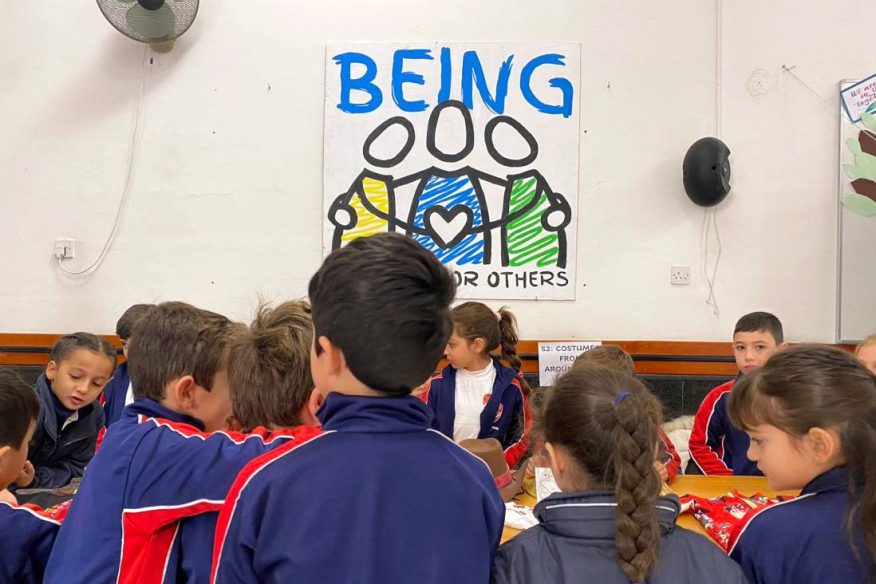
The “Men and Women for Others” Award
This is the highest award given by St Aloysius College and highlights significant testimonies of individuals who embody the values promoted by the College. It was awarded to ex-alumna Katrine Camilleri, Director of the Jesuit Refugee Service in Malta, who has spent her life accompanying and advocating for refugees and migrants. Ms Jane Callus, who was instrumental in creating an inclusion programme and an Ignatian Formation Programme at College, also received the Men and Women for Others award.
Resources
St Aloysius College offers free education to all students as per the obligation imposed by the Church-State Agreement of the 1990s. The College asks parents/guardians for a small annual donation. Refugee students and those with financial difficulties are supported free of charge throughout their years at College.
